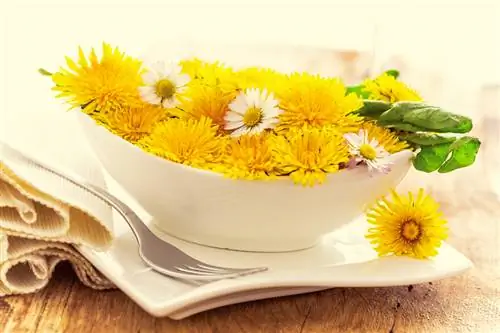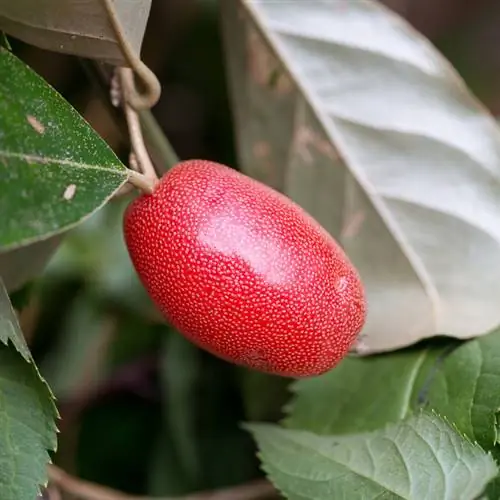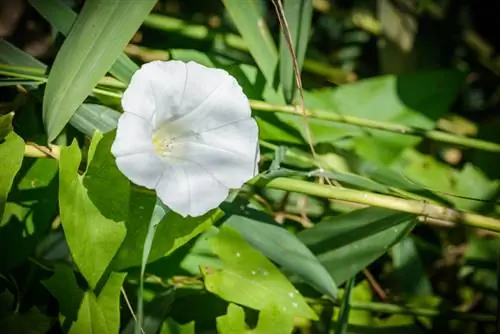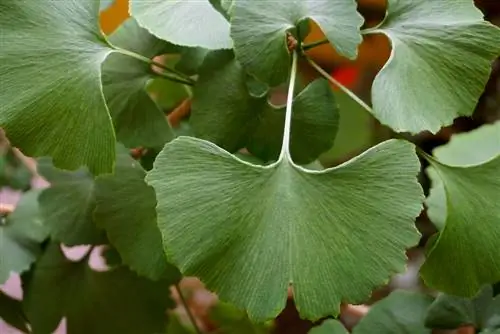- Author admin leonars@hobbygardeners.com.
- Public 2023-12-16 16:46.
- Last modified 2025-01-23 11:20.
Do you feel like enjoying fresh flowers from nature and are you thinking of buttercups? Don't rush into it, just read this article first! The reason: Some buttercups are edible, others are poisonous
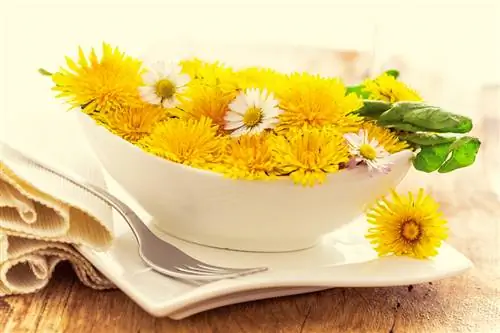
Are buttercups edible or poisonous?
Are buttercups edible or poisonous? Dandelions, also known locally as buttercups, are edible and contain valuable nutrients. However, the hot buttercup, also known as buttercup, is poisonous when fresh and can cause unpleasant symptoms.
Do not eat hot buttercups
The hot buttercup is called buttercup. It is classified in the buttercup plant family and is considered poisonous. It's best not to meet him in your kitchen. Consumption can lead to vomiting, diarrhea and, in the worst case, paralysis and shortness of breath.
It is completely different when plant parts of the hot buttercup are eaten dried. If you mow your meadow and let the plant parts dry into hay, you can have these buttercups with you. When dried, the hot buttercup is not poisonous. The toxic substances convert into non-toxic substances when drying.
A buttercup is also edible fresh - the dandelion
The dandelion is called buttercup, especially in regions of southern Germany. This is probably because its butter-yellow flowers were once used to color butter. In contrast to the fresh hot buttercup, it is edible.
Especially its flowers, leaves and buds are eaten. The roots are known in medicine. You can use the plant parts, for example, for:
- Salads (flowers and leaves)
- Spinach (leaves)
- Soups (leaves)
- Sauces (leaves and flowers)
- Tea (leaves and roots)
- for pickling (buds)
- Honey (flowers)
Where can you find the dandelion?
Dandelions can be found in nitrogen-rich soils. It likes to inhabit roadsides, open forests, forest edges, meadows and fields. It is best collected shortly before or during its flowering period (April to May/June).
How does dandelion affect the body?
You shouldn't eat too many dandelions. Otherwise you may experience abdominal pain coupled with nausea and diarrhea. Well-dosed amounts of dandelion have a beneficial effect on the body:
- diuretic
- bile-producing (e.g. in liver problems)
- digestive
- blood purifying
- blood forming
- anti-inflammatory (e.g. against gout, rheumatism)
Tip
Dandelion is rich in vitamin C, carotene and iron, among other things. Regularly integrated into the menu, it replenishes the body's nutrient depots.

